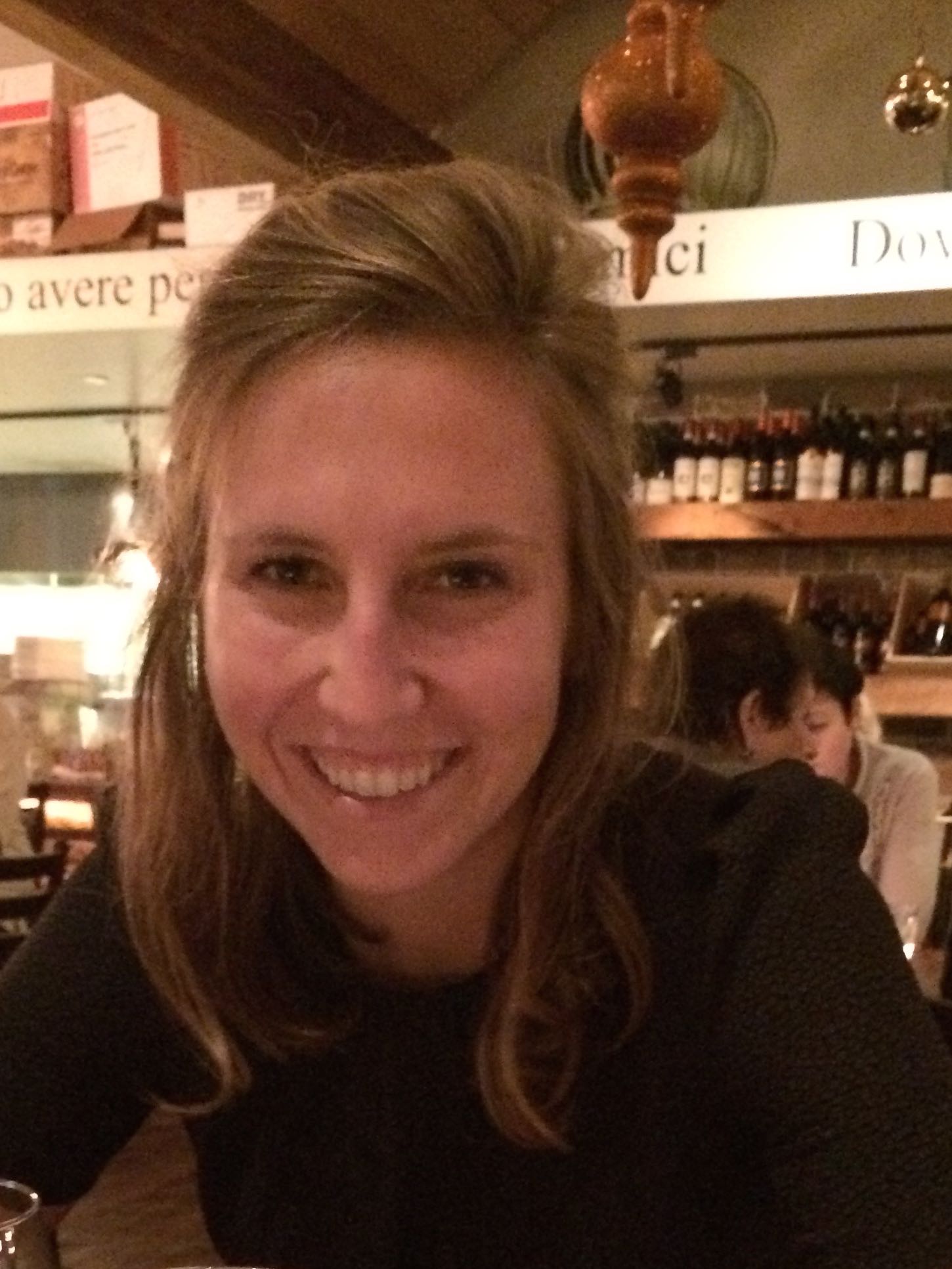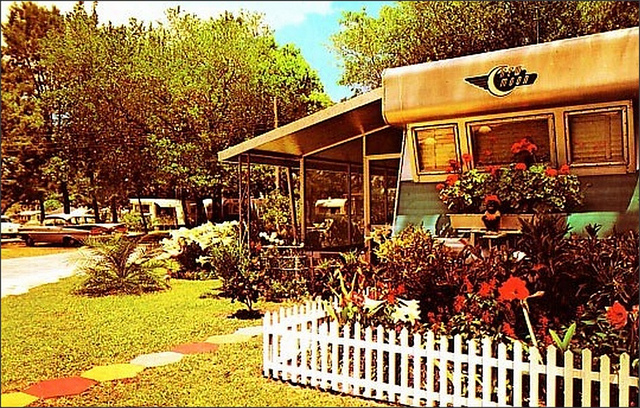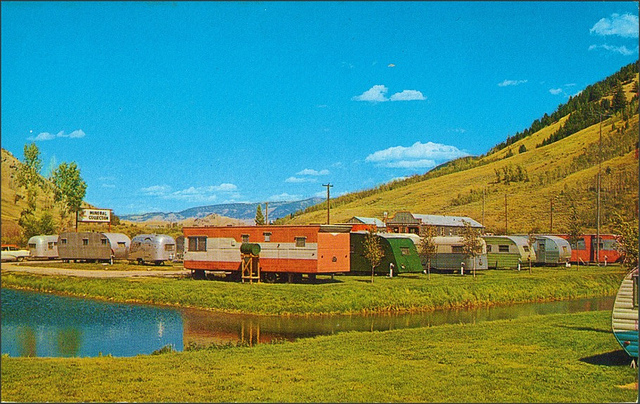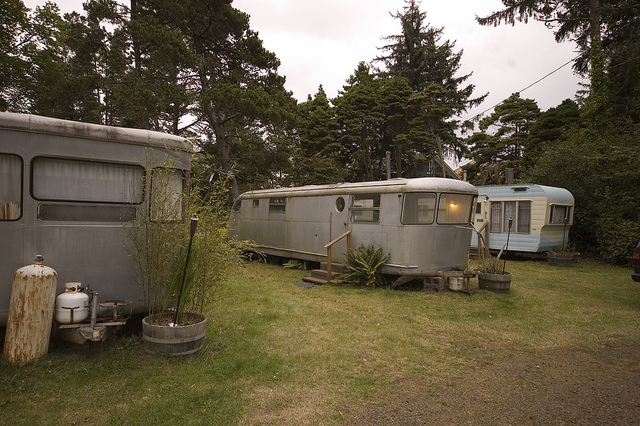Why You Should Care About Trailer Parks

By:
Frank Rolfe doesn’t want to come across as evil.
Rolfe, one of the founders of Mobile Home University, a company that offers a three-day boot camp on best practices for mobile home parks, owns over 100 parks in the United States with his partner, Dave Reynolds. The industry has been under increased media scrutiny as of late, after residents in an Austin trailer park owned by Rolfe and Reynolds protested rent hikes.
“I don’t think of myself as evil,” he told me over the phone when I asked what he believes to be misconceptions about the mobile home industry.
 1950sUnlimited / Flickr - flickr.com
1950sUnlimited / Flickr - flickr.com
Earlier this month, Rupert Neate, a reporter for The Guardian, wrote a piece titled “America's trailer parks: the residents may be poor but the owners are getting rich.” Rolfe took issue with The Guardian’s portrayal of his business, and on Mobile Home University’s website, Rolfe questioned whether The Guardian was jealous of the profitability of the mobile home industry.
“We had frankly never heard of the Guardian before they came to our Boot Camp. But now that we’ve done some research on them, it appears to us that they are perhaps the poster-child of hypocrisy and poor business practices. At least the reporter now has an idea of which industry to go into when his pink slip arrives,” wrote Rolfe in a post on the website.
The New York Times Magazine ran a piece about Rolfe and Mobile Home University in 2014 that highlighted the dichotomy inherent within making millions off poor tenants. Yet, wrote Times reporter Gary Rivlin, who spent a few days living in one of Rolfe's mobile home parks, "[t]here’s some nobility in the Rolfe-Reynolds business model. The parks they take over tend to be in lousy shape, and they spend hundreds of thousands of dollars fixing them up. In that way, they’re the trailer-park equivalent of the developer who buys abandoned properties in the Bronx and converts them into livable places that are, at least, clean and safe."
I spoke with Frank Rolfe about his thoughts on the draw of the mobile home business, raising rents, and evicting tenants, and the responsibilities that the owner of a park has to its tenants.
This interview has been edited for clarity and length.
Can you briefly describe the business model of owning a mobile home park, and why it's lucrative?
The mobile home park industry has suffered from a stigma for decades, and if you look at the history of it, it started off very upscale. As they started building subdivisions [in the 1950s and 1960s], a lot of people moved to them, and they got out of their old mobile home parks. Suddenly you had all these mobile homes and mobile home parks sitting there gathering dust, and so the next wave of tenants came in and were not nearly as nice as the ones that were there before. As a result, you kind of got this trailer park stigma that [trailer parks] are dangerous, and awful, and you see [trailer park residents] on the "Cops" show, and "Jerry Springer," and "Jeff Foxworthy," etc. The media went wild with the stigma because it was funny, but the truth is, 8 percent of the entire U.S. population lives in a mobile home.
 1950sUnlimited / Flickr - flickr.com
1950sUnlimited / Flickr - flickr.com
In reality, [mobile home parks] are not scary, the people are not crazy, they don't go around shirtless and beat each other up every day like you see on "Cops," but it is that group of folks traditionally that make about $30,000 a year or under, which is about 30 percent of the U.S. population, so we do serve the bottom third of America based on income.
Mobile home park [capitalization] rates probably average about 10 percent, and that is significantly higher than apartments and any other form of real estate. It's just the way they're set up. Another reason mobile home parks are lucrative is that the customers can't go anywhere, because the homes cost $5,000 to move, if they can be moved at all. Because of that, your revenues are extremely stable. The supply is pretty much locked in concrete because cities and towns don't want [mobile home] parks, so they don't allow any new ones to be built, which has been true for decades. The demand is huge because of the affordable housing crisis in America.
How did Mobile Home University originate?
Mobile Home University started as a hobby and it remains a hobby today for myself and my partner Dave Reynolds. Our day job is we're the sixth largest owner of mobile home parks in America, and our night job is we write about the industry and teach about it. We've been doing that for about a decade. Because it's a hobby, we're able to be more honest than most people and we've also had a lot of fun with it, because it connects us with all of our mobile home park owning peers. It also has allowed us over time to at least teach some kind of stable curriculum so that the industry has some kind of benchmark to operate from. Early on, even in David and my careers, if you wanted to get an appraisal for example, it was nearly impossible, because no one knew how to appraise a mobile home park. Now there's been so much information on all fronts that people kind of know how mobile home parks work. Not that we are the fathers of the industry because we're certainly not, but we are the only people who actually put any time into writing material on it.
Do you keep track of graduates of the Mobile Home University seminar to see whether they purchase mobile home parks?
We don't bug them, but we do find many of them come back later and tell us about a park they bought, or a park they bought and then sold. But we don't harass them. We don't call them up. A lot of them, by going to [Mobile Home University] they get a service called Quick Deal Review, which is where they call me with their deal and tell me what it's all about, and I tell them whether it's a good deal or a bad deal, and how to improve on it. I would guesstimate probably 25 to 30 percent of [attendees] end up buying a park.
 Lisa Parker / Flickr - flickr.com
Lisa Parker / Flickr - flickr.com
The 2014 New York Times Magazine piece about Mobile Home University mentioned that you often spend hundreds of thousands of dollars renovating a park. What renovations do you typically undertake?
There's stuff that doesn't cost any money at all, and that's simply getting an accurate rent roll, and enacting professional systems of rent collection, rules enforcement, and all that kind of stuff. That first part, getting everything in a correct legal format, that's basically free. Next level are cosmetic items, and those could be going lot by lot and taking out dead trees, landscaping, putting in new signage, painting things that are rusted.
Then you have a third level which is really expensive, and that's the structural stuff. There are some parks we buy where day one we have to go in and replace the roads. The roads in some parks can cost up to $300,000 or $400,000. There are some parks we buy where we have to go in and fix private water or private sewer systems. Those can be hugely expensive. So it really depends on the park. The parks that we prefer doing are the ones that have no structural issues but do have more cosmetic issues.
As the owner of a park, how often do you typically raise the rent? Is there a cap or an ideal rent range?
If you look across the board, I think the U.S. average for rent increases in parks is roughly about 5 percent a year. That is in fact the same metric of the prices of almost everything out there. I think colleges and universities have outstripped that, I think [college tuition has] been rising at 8.7 percent over the last 30 years (Here are the statistics on tuition increases from the National Center for Education Statistics).
You're hard-pressed to find anything that you pay for, whether it's your power bill, water bill, that does not increase roughly 5 percent a year. In the park business, what sometimes causes tenants to get in an uproar is that Mom and Pop [previous park owners] never raised the rent 5 percent or even 1 percent sometimes for decades. So now you have to go in and correct that, and people say, "You raised the rent from $100 to $200 a month, that's gigantic," but you say, "Well, but if you look back over the last 20 years, it was never increased ever, so it's really only a 5 percent per year increase, it's just that I've been put in the position of having to do it all at one time because Mom and Pop never did it."
Most park owners look to the comps of what's going on in the market. If rents in that market are rising rapidly, you might do more than 5 percent. If the area's in some form of recession and the big plant just shut down or something, you might not raise them at all. But the U.S. average is 5 percent. (Editor's note: According to The Guardian, Rolfe told attendees of Mobile Home University boot camp,“We traditionally raise our rents by an average of 10 percent a year or something like that, and it’s pretty much true for the industry.").
What's the most common reason that a resident of a park would be evicted?
The number one reason is not paying rent. The number you really need to watch though is not your rate of eviction filings, it's the rate of what's called writ of possession. That's the next level after you get the eviction [filing], which allows you to actually remove the tenant from the property. A lot of people, when they get the eviction, it's a wake up call that they have to pay, and then they pay. We file a lot more evictions by far than we file writs of possession.
Do you think a federal increase in the minimum wage, say to $15 an hour, would affect the demand for mobile housing, or is the population in mobile home parks primarily retired?
The biggest new factor in the mobile home parks business are the 10,000-a-day Baby Boomers who are retiring or downsizing. They then look around [to see] where they can live cheaply, and they often say, "I sold my house for $200,000; I'll buy this home for $20,000 and I'll put $180,000 in the bank." So we get a whole lot of Boomers who are basically retiring and downsizing.
On the minimum wage side, if they were to raise minimum wage even to $15, it won't really change anything. Fifteen dollars [an hour] is still thirty grand a year—you're not really mandating people into prosperity by doing that. What'll happen is, it'll make those people who were making $9 an hour more affluent so they can pay their rent easier. Our typical customer makes from about $15,000 a year to $30,000. If you earn $30,000 and you go by the government statistics of 30 percent [of your income] goes towards your housing, it gives you a budget of about $800 a month. $800 a month is not really going to get you a single family home with three bedrooms like a mobile home would have, so I don't think you'll see a mass exodus of people building custom homes if they were to [raise the federal minimum wage].
You've described recent reporting about Mobile Home University as "sensationalistic" or "taken out of context" - can you explain what you think people get wrong about Mobile Home University?
Everyone loves Mobile Home University, so that isn't an issue. We were in the press recently at a mobile home park in Austin. In that case, we raised the rents on the tenants from $390 to $450 a month, plus we were making them pay their own water/sewer, because the water/sewer rates are unseemly high (Editor's note: The Guardian reports varying rent increases at this Austin park). One of them went and talked to their city councilman, and he told them, "Let's fight for your rights." They banded together and filed a lawsuit. Everyone knows there's no rent control in Austin, nor is there any control in passing back water/sewer [costs]. Apparently we're now finding out that the former owner had about 10 leases that were more than month-to-month that he did not tell us about, so we've got to get all that corrected.
There's always this concept with mobile home park landlords that they're evil, and they're trying to gouge the poor. That's been going on forever. If you really look at the statistics of it, mobile home park landlords are the only guys out there with affordable housing. If you put it in perspective, our rent at $450 is perhaps the lowest in the entire city of Austin. The landlord's not the mean guy. Without the landlord, there would not be any housing. Any time there's anything negative with my name in it, or Dave's, it's not related to MHU [Mobile Home University]. That's not the issue. The issue some people have is just with the business model itself, the fact that our tenants are poor, and as a result I guess people think we're supposed to be the government, but yet we're not. I guess there's some kind of broad misunderstanding regarding landlord requirements and such.
What do you think the responsibilities of a mobile park owner are to tenants?
Our business model is simple. We rent land. So the first thing we have to do is have land where your home can sit peaceably, which means it has to be properly zoned and legal and in good standing with the community. Then you have the roads, and for us the roads need to be solid and devoid of significant potholes and in good condition. You need to have obviously your water flowing, the sewer flowing—no problems, no backups.
[We] basically try to create an atmosphere that is safe, and clean, and attractive, but beyond that, we're really more like a subdivision, because most of what happens after that is out of our realm. We don't police the park; we don't have security. It's not like a business, like running a restaurant or something, where we offer all kinds of amenities and services, because we don't. We're technically a parking lot for mobile homes, and that's what we do.
